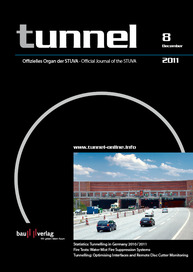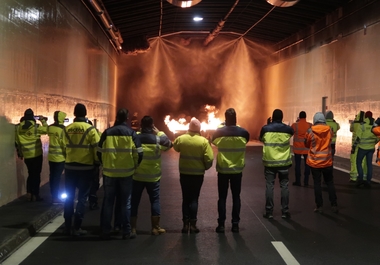Code of Practice for the Control, Maintenance and Servicing of Road Tunnels (M KWTP)
Edited by: Forschungsgesellschaft für Straßen-und Verkehrswesen e.V. (FGSV). 2011, 36 pp (DIN A4) with 14 Ills., 10 Tables and 20 Sources. FGSV 419, ISBN 978-3-94-790-82-7. 32.00 euros. Available from the book trade (see box). The code of practice was compiled by the working group for the operational maintenance of road tunnels of the FGSV and describes the necessary number of tasks for controlling and servicing such structures (visual and functional checks) as well as their servicing (cleaning, repair etc.). In this connection it refers to the relevant tunnel elements with the related...




